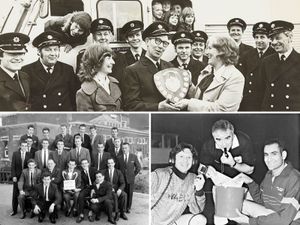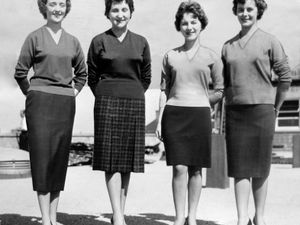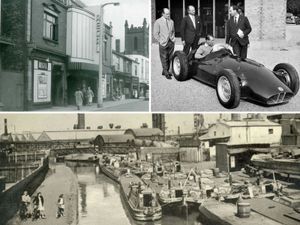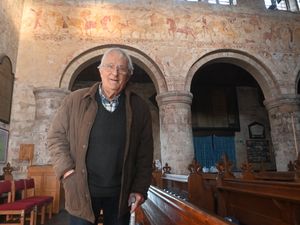West Midlands Trains boss: We are sorry we have let passengers down
The boss of West Midlands Trains today issued a public apology to passengers, saying: “We are nowhere near good enough”.
In an open letter, managing director Julian Edwards said: “There’s no two ways about it – we have let you down.”
The under-fire train operator today answered questions submitted by readers, many of them fed up with late and cancelled trains and overcrowded carriageways.
And today the firm published five key steps it would look to achieve to put things right.
Mr Edwards added: Simply put, our service has been nowhere near good enough – and it has to change.
"As the new Managing Director, I’m here to put things right. We’ve already made changes, big and small, behind the scenes.
"But we know that to rebuild your confidence completely, it’s going to take a huge, co-ordinated effort; and it’s going to take time."
Read the open letter in full:
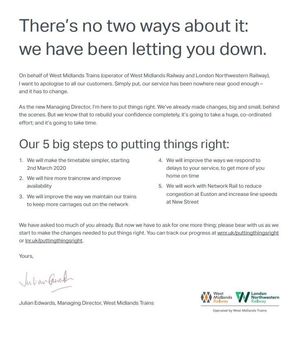
It has pledged to refurbish or replace its entire fleet of trains, adding an extra 155 extra carriages to its fleet.
And an extra 81 staff will be taken on to deal with the issue of services being cancelled at short notice because of driver shortages.
The Government recently told West Midlands Trains it must spend an extra £20 million improving services and reducing delays following “poor performance”.
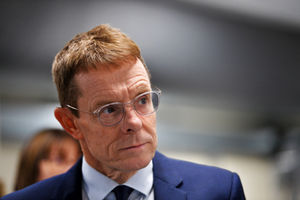
The firm saw satisfaction levels plummet last year after cancellations and delays, including what was called a “shocking week of poor service”.
It gave season ticket holders a discount as an apology and set up a compensation scheme.
West Midlands Mayor Andy Street threatened to take steps to take its franchise away if services did not improve.
Boss answers your questions over troubled services
David Whitley, head of customer experience, admitted today that the company had let its passengers down after months of delays and cancellations during the second half of last year.
He said a new timetable introduced in May had proved “too ambitious”, but said services had improved since the start of the year.
Today, in an exclusive interview, Mr Whitley said the company would be taking on 81 extra drivers and conductors.

He added that by the end of next year, every one of its trains would either be refurbished or replaced.
He also answered questions sent in by Star readers.
Here are his replies:
My monthly season ticket was discounted by three per cent to cover the two per cent rise. Subsequently, my direct debit has gone down by 25p a month. This does not come close to compensation for all the stress of the last eight months.
David Whitley: “I know we have let a lot of customers down, that’s why we have to make things better. The three per cent decrease was introduced because we didn’t think it right we should put our fares up after the performance our customers have endured.
“We have a separate compensation scheme, with refunds of up to 100 per cent for journeys with more than a 15-minute delay. That’s one of the most generous compensation schemes you can get.”
Why does the reliance on rest-day and overtime working to meet staffing demands continue?
Mr Whitley: “It is being addressed. We are taking on an extra 80 staff which will make us more responsive, while retaining the ability to offer staff overtime if they want it.”
The addition of an extra 'limited stop' train per hour on the Wolverhampton to Shrewsbury line is very welcome, but why are several stations – Bilbrook, Albrighton, Cosford and Oakengates – being missed out?
Mr Whitley: “We are looking at what options exist at the moment, but we can’t stop at more places without considering if it holds up other services behind us.”
As a rough estimate, on 80 per cent of journeys on the Wolverhampton-to-Shrewsbury line, no effort seems to be made by the conductor to check tickets or collect fares. Why are tickets not issued or checked on the trains?
Mr Whitley: “We have a senior conductor on every train. They have to strike a balance between safety, with opening and closing of doors, and checking tickets. We also have a mobile revenue protection team, some of which work in plain clothes.”
We were promised better trains and better services, and three years later we are still waiting for this service. The trains are still dirty, and still representing the London Midland franchise, trains are being cancelled all the time and always seem to be late. Why do we not have plugs for long journeys to do work? Tables throughout the train, and not just first class? Cleaners that come on board at termination stops to tidy the train?
Mr Whitley : “All our trains are being refurbished if we are keeping them, if not they will be replaced. The refurbished trains will have plug sockets by every seat, free wi-fi and tables. Of the trains that run from Coventry to Wolverhampton, 10 have now been refurbished, and we have had very positive feedback from our customers who say they are like new trains.
“It can take several weeks for a train to be refurbished inside, and obviously while that work is being carried out the train will not be available. We have to strike a balance between the need for our trains being refurbished, and the need to reduce overcrowding. We are spending several million on refurbishment and new trains, and by the end of next year all our trains should either have been refurbished or be brand new. On-board cleaning is difficult when a train is in use all day, but we are looking at ways to carry out much more efficient in-service cleaning.”
Why are disabled people confined to wheelchairs having to sit next to the toilets?
Mr Whitley: “If the wheelchair is not near the toilet, it is very difficult to get a wheelchair down the aisle-way if the customer needs to use it. On our new trains we are working on a more optimal location for wheelchairs.”
How will you improve overcrowding on the Cross-City line in mornings and afternoons, when passenger numbers are high, but you only have three carriages?
Mr Whitley: “The Cross-City line has been a success story, it’s been growing very quickly, and is carrying one million more people than last year. By the end of next year we will start introducing our trains that are being built at Derby, and each train will be six carriages long. Since December, we have managed to have two big trains of six carriages, and we are working to get more and more on over the next few months. By May, we hope to have at least a partial solution.”
What is West Midlands Trains going to do to improve passenger facilities at Wellington station, which presently are very poor?
Mr Whitley: “We are working very closely with people in Wellington to make the station a more welcoming place. We are investing £1 billion over the year, which gives us a big chance to do something with Wellington which is a place that could do with a bit of love. It’s on our list.”
Regarding the lack of reliability on the Shrewsbury-Birmingham route, what are WM Trains doing to appoint a lot more staff to make our services more reliable?
Mr Whitley: We are taking on extra staff. In addition, we are improving our resource management to make sure we have more focus to know exactly who is going to be in at certain times.
While it is great that the Birmingham-to-Shrewsbury route has gained another train each hour, why is it so close to the timing of the Transport For Wales train?
Mr Whitley: “We made some changes in December to improve that, and there’s now more distance between the two services. The problem is that our service stops at all stations, and the Transport for Wales service catches up.”
I pay nearly £1,500 a year for my season ticket between Cannock and Coventry, but in both directions there is no effort to ensure only first-class passengers use it. Why I should pay the extra?
Mr Whitley: “Historically there was no first-class between Cannock and Birmingham, we introduced it last year. At peak times, first-class is open to everybody. Services to Birmingham get very busy, and at times the conductor will allow all customers to use the first-class carriage if the train is full. We do have regular patrols of first-class, and I will take that back to our revenue protection team.”
We have a climate emergency, and New Street station has pollution problems, so why have you ordered more diesel trains? Shouldn't these trains at least be bi-modes that can run on overhead electricity or batteries?
Mr Whitley: “Electric trains are cleaner, greener, and more reliable than diesels, which is why we’re launching a £500 millon, 81-strong fleet of brand new electric trains next year which will run across our electrified network. They will also feature a clever regenerative braking system that actually returns electricity to the national grid when they slow down.
"Bi-mode trains are an option for our non-electrified lines, such as the Shrewsbury and Hereford routes – but they are more expensive to build, maintain and operate than a conventional diesel train.
“Much like a hybrid car, they are also less efficient to run if you are primarily using them under diesel power, as they are significantly heavier than a diesel train. Where they do make sense is on longer distance services where the majority of the journey is on electrified lines.”

